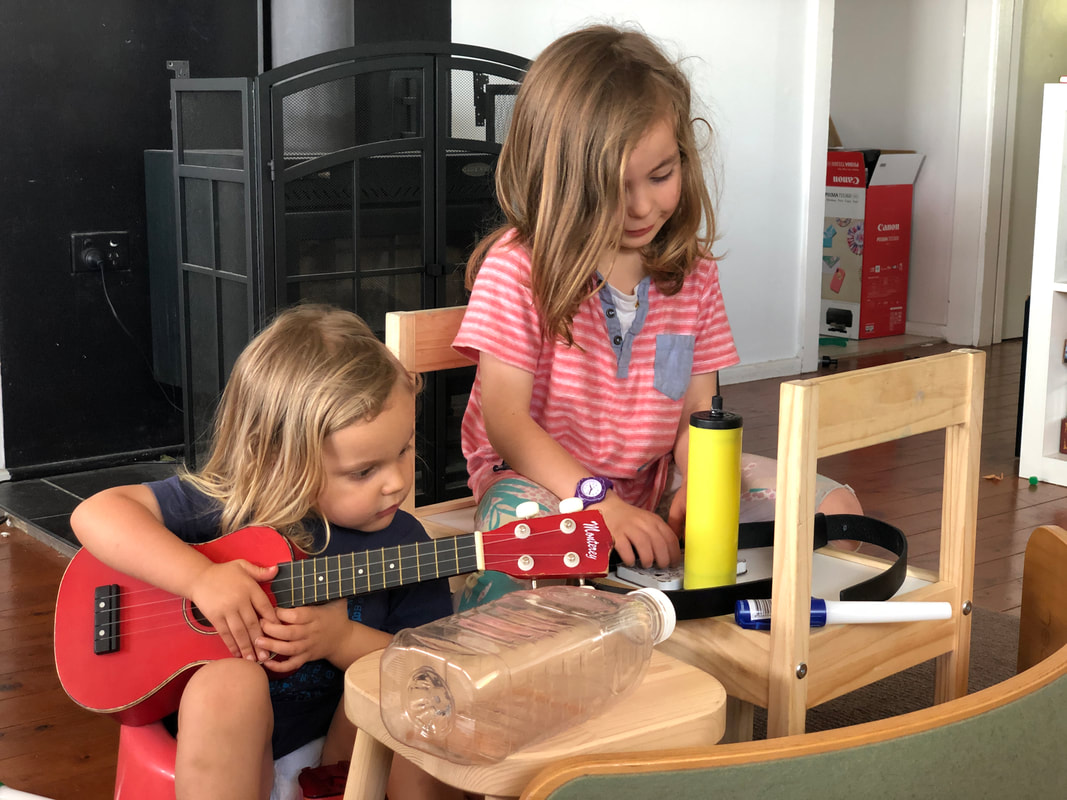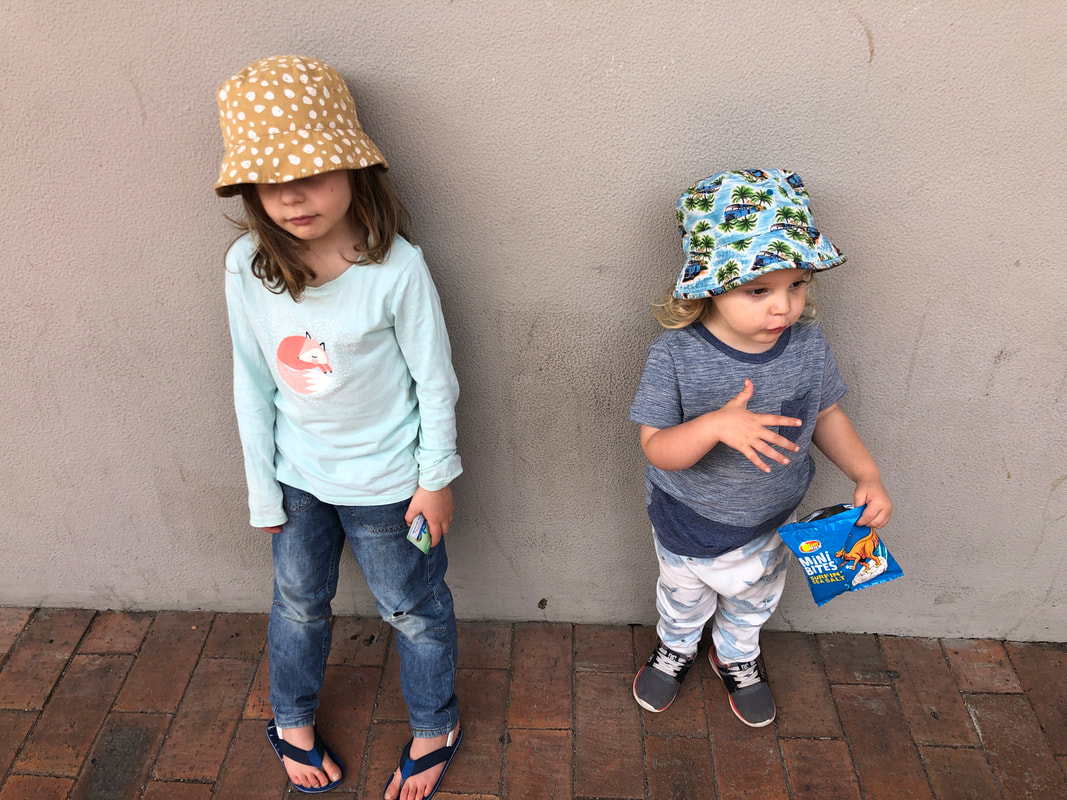|
These are my sons, Noah and Leo. They both have a penis.
And they both have adorable long hair. Noah’s favourite shirt has a pink glittery flamingo on the front. Leo collects shiny things like a magpie in his bed. They are both rough and gentle and kind and fierce and infuriating and fantastic. They are all kinds of wonderful and wild. This morning the three of us were sitting in one of our favourite local cafes having a babycino date. Sunshine out the window, double-shot flat white in my hand and the glorious site of chocolate mono-brows emerging as my kids made contact with the rim of their cups after every sip. Another family came in and sat behind us. I could hear the parents talking to one of their children about the exposed air conditioning system and what those large silver tubes snaking all over the roof were there for. I smiled; we had just had this conversation. When I got up to leave, the mother looked at me with kind, parental solidarity and asked, “How old are your girls?” My boys are five and three, I thought. “…Five and three” I said, opting to avoid any awkward vibes. “We have two the same age. Except they’re boys. So they’re very busy!” I smiled and walked out, leaving behind the familiar gift of assumptions with a side of stereotypes. Before I continue, I want to say, this family seemed lovely. There was genuine warmth in the interaction, and I have no doubt these are good parents who love their busy boys well. There was nothing malicious in this interaction. But isn’t it amazing how quickly our minds make links? My sons have long hair, so the snap judgment is that they are girls. And if they are girls, they must be less ‘busy’ than boys. I have interactions like this every week. I don’t have time to write a blog post about it every time (that’s what this poem is for). But this morning I was still stewing over an interaction from the night before. I was sitting round a table playing board games at a mate’s place. (Gender stereotype much? Sidenote: it doesn’t help that basically every board game ever only refers to players as ‘he’ in the instructions. Seriously. Go read instructions for any strategy game. Once you see it, you can’t unsee it). Anyway, it turns out one guy’s wife is pregnant. Congratulations are exchanged. Then someone asks, “Are you going to tell everyone what the gender is?” “Yeah, I think we will”. “Good choice. You don’t want to end up with a whole bunch of yellow and grey clothes.” True. You definitely don’t want that. What could be worse? I gently offer an alternative perspective, “You could just let your child wear whatever clothes they want?” It was a genuine suggestion, but grey-hater builds on what he perceives to be a joke about how PC the world is becoming, and chuckles: “Yeah. You need to wait until the child decides if they are a boy or a girl first!” He then tells a story about how his son always plays with trucks and cars as vehicles, but everytime he has seen girls play with trucks and cars they become characters talking to each other. His son never does this. His trucks and cars never have a conversation. He finishes the story by making the point that in the case of his son “it’s not a social construct”, just an observation about how his boy is wired. Read between the lines: he’s following those good old fashioned rules about what a boy is supposed to be like. Phew. Once again, I am sure this guy is well intentioned and that he and his wife love their little person who has the good sense to play with trucks like they are trucks, rather than characters having an emotional ‘girly talk.’ And I know, in the grand scheme of things both of these interactions may seem small and trivial. But that is kind of the point. It’s why I often don’t know how to respond when people project their assumptions on to my kids. It feels like I would be the one making a ‘big deal’ about gender and hair length. Meanwhile, pouring kids back into the moulds they supposedly came from is so socially acceptable you seem like a revolutionary for suggesting yellow and grey aren’t the only colours up for grabs if you don’t yet know whether it’s a penis or a vagina? This large, invisible framework of gender roles/stereotypes/expectations is actually made from mountains of ordinary, everyday, seemingly harmless moments like these. That’s the whole point. If you think your kid is free of any social construct, but the first question you ask someone when they are expecting is whether they are going to announce the gender….then sorry, I’ve got news: you’re handing your kid a pretty clear script for how they are supposed to perform in this world. And from little things, big things grow. Could there possibly be any connection between these busy little boys whose trucks don’t talk and these risk taking teenagers who don’t articulate their feelings and these grown up men who are angry and violent and isolated? It doesn’t happen in a single moment, but a lifetime of messaging about what the world does and doesn’t expect from you….might just produce exactly the kind of results we see on the other end? If you’re not allowed to wear certain colours when you’re an infant how many other options are already being taken away from you? How many unnecessary walls have been built for you to climb, before you have even learned to crawl? I’m not under any illusion that my house is some kind of magical neutral zone free of social constructs. Our kids are going to have plenty they need to unlearn. But I hope that every time we become aware of an invisible rule, we talk about it. We put a spotlight on it. We ask questions about it. We decide whether or not it is life-giving. And when the rules are questioned, some of them get ditched. I live with these wonderful little people who see themselves as poets and artists and inventors and scientists. They paint their nails and love dinosaurs and build towers and collect flowers and kick balls and ride bikes and cry and laugh and scream and give me high fives and kisses on the lips. All of these things are true. Shocking, I know. And I am sure it is confusing when we leaves our house where we’ve tried to dismantle these rules, and they walk through a world where some people call them she and some people call them he, and then people treat them differently based on which one of these they see. It can feel like it’s a lose-lose. We either start playing by the ‘rules’. Or we prepare for the ongoing bafflement and confusion and social awkwardness. But at the end of the day, I don’t think is my choice to make. If my kids want to rock long hair and pink flamingo shirts, I’m not going to stand in their way. Instead, I will try my best to create conversations about why this might confuse some people. I will share about the old stories, the invisible rules that have existed for a long time. I will also emphasise that they aren’t written in stone and they don’t deserve the weight they are given. We will talk about how I am a man and Mama is a woman, and that does mean something, but it has nothing to do with colours or hair or emotions or skill sets. We will ask together, what do these words mean, ‘man’ and ‘woman’? What could they mean? And what are the deeper words we would use to describe who we are? Maybe sometimes there’s no better word for who you are than your very own name. If you’ve read this far, could I ask you to consider a simple suggestion? A concrete action that we could all easily take? It’s one small brick in a big wall, but if we all took down one brick a day, that would make a profound difference (and maybe we could do away with some wrecking balls in the process). Ready for it? When you are interacting with a parent and/or their child for the first time, ask an open question without gender assumptions, like this: "How old is this little person?" "What is this little person’s name?" 90% of the time the answer will be something like. “She is two years old.” “His name is Rupert Made-up-child the Third!” If they say a name but not a gender, then just use their name in your follow up questions: “What does Rupert like to do? This might not seem like a big deal. It’s not going to eliminate all our ingrained stereotyping and assumptions and invisible rules. But I guarantee you, if you train yourself to ask a question like this first — that little shift in awareness will ripple out in all kinds of beautiful and helpful ways. After all, from little things big things grow.
3 Comments
|
Categories
All
Archives
November 2022
|
Proudly powered by Weebly



 RSS Feed
RSS Feed